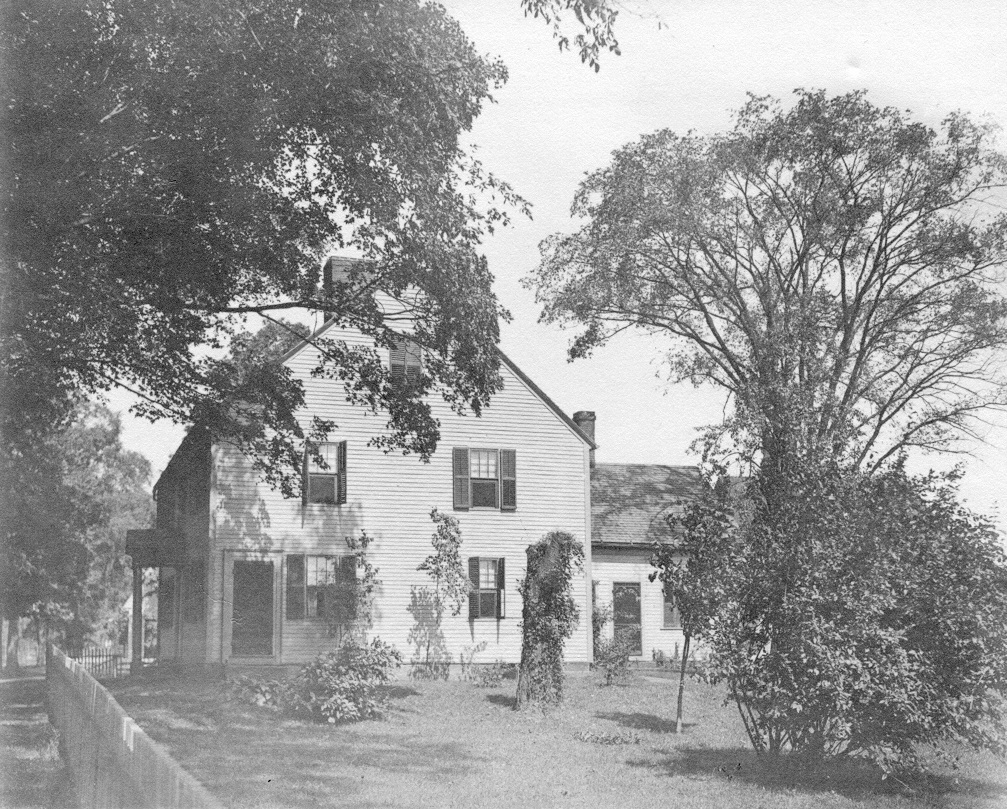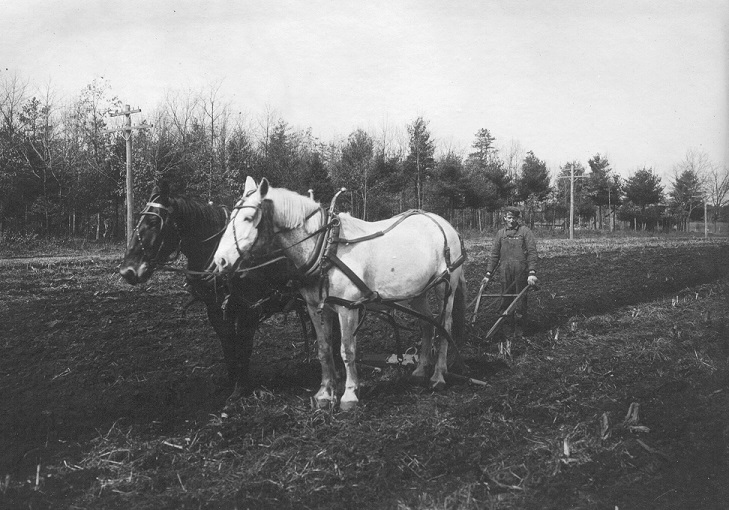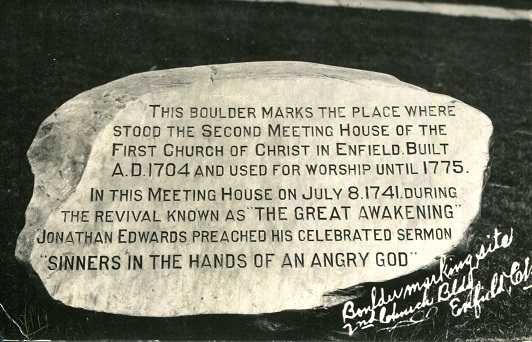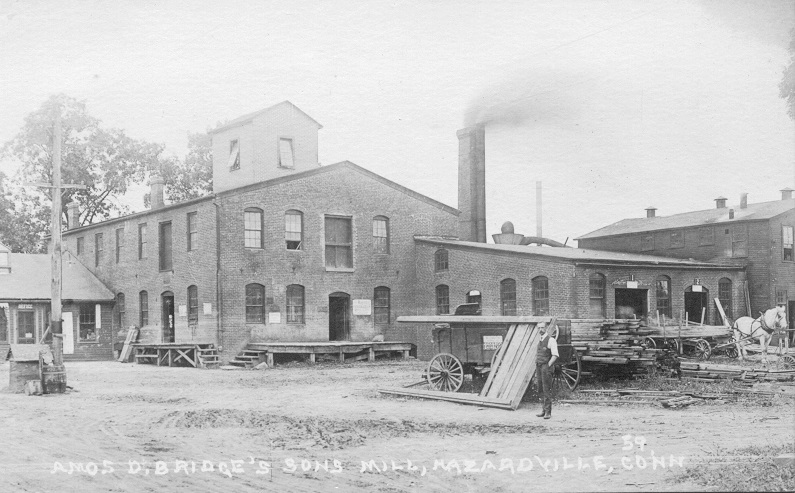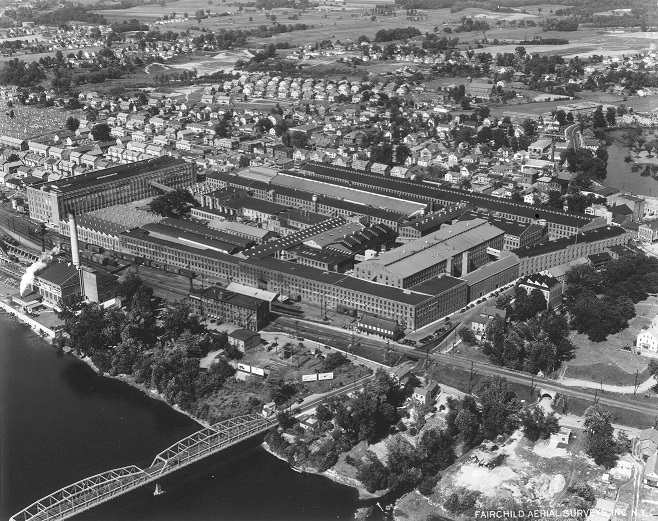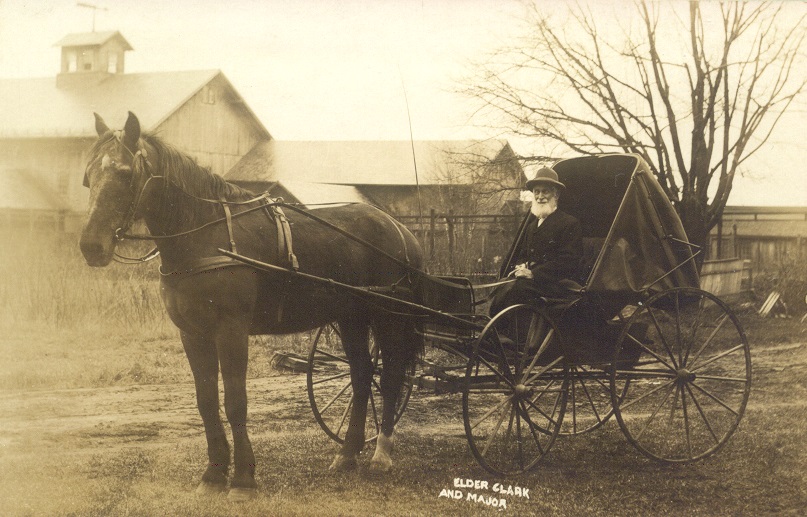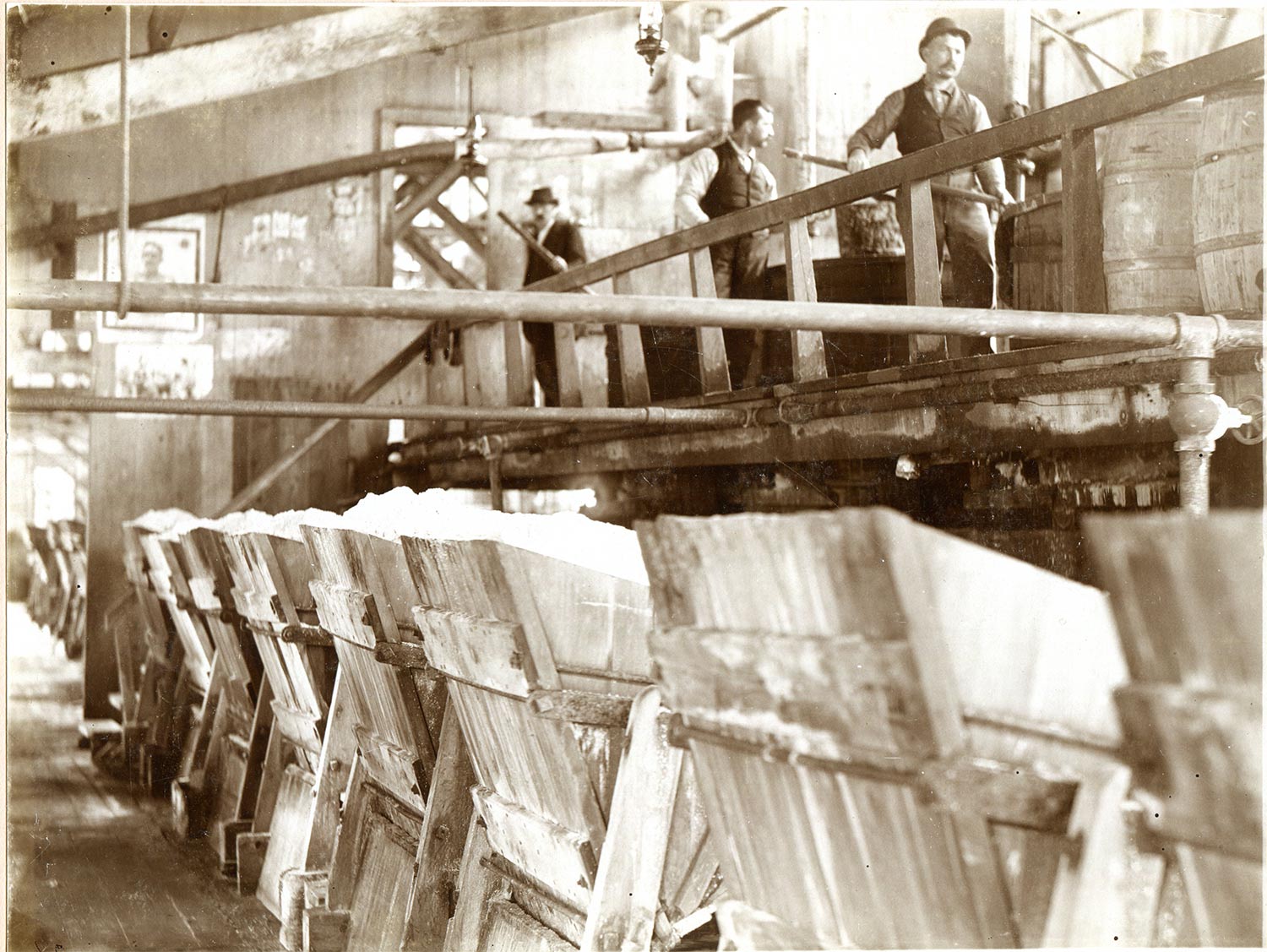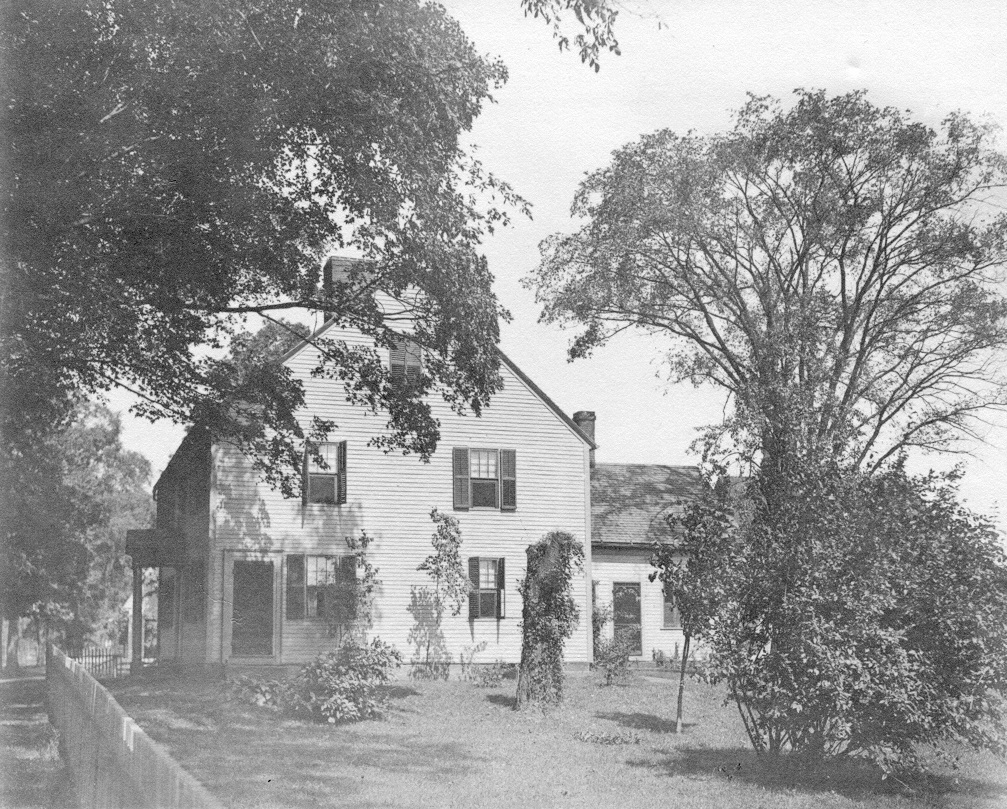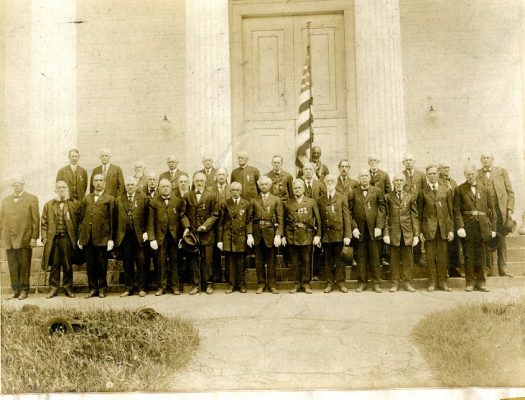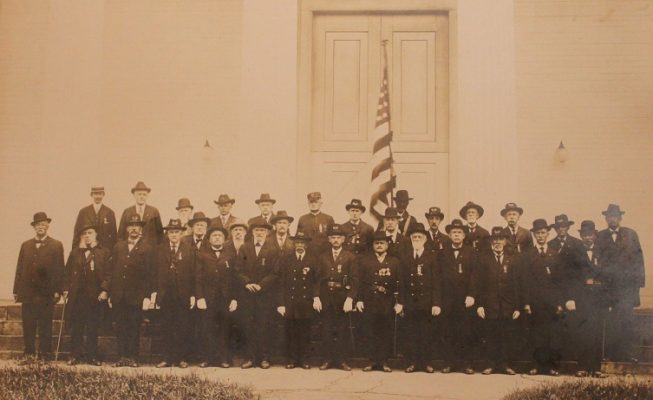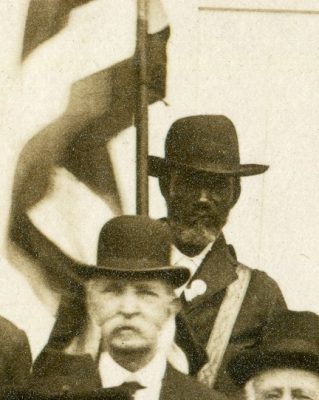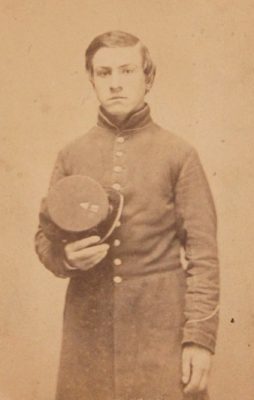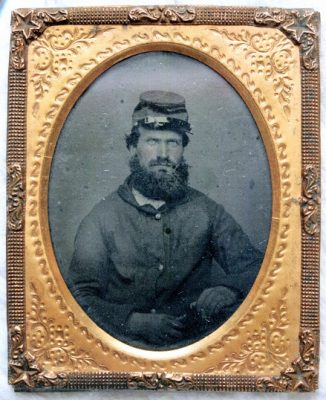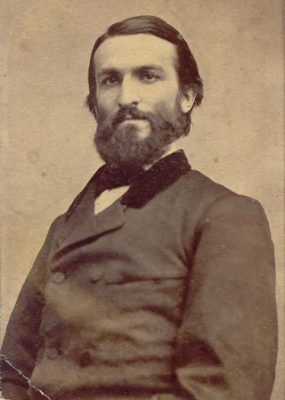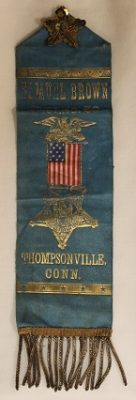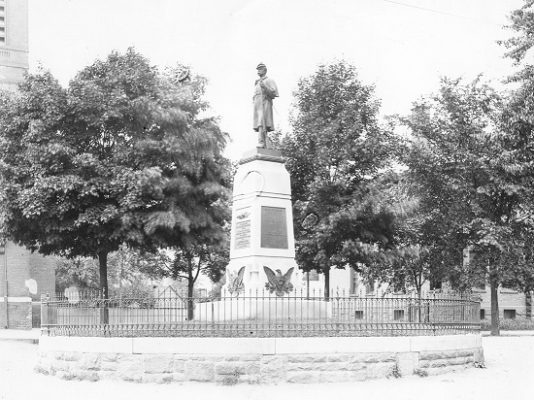At the outbreak of the Civil War Enfield residents became aroused as they had not been since the Revolutionary War. At a town meeting held on April 29, 1861, resolutions of loyalty to the general government passed unanimously. The resolutions asserted that “it was the duty of every citizen to assist in punishing treason, suppressing rebellion; maintaining the constitution and enforcing the laws.” This spirit of loyalty never waned throughout the conflict, sometimes referred to as the War of the Rebellion.
A total of 421 Enfield men enlisted in the Army for military service during the Civil War. By July, 1864 there were fifty-eight more men in the service than had been called for by the population-based quota for Enfield. Due to Enfield’s generous enlistment bounties and provisions for soldiers’ families, the town incurred a debt of $40,000 (about $700,000 in 2021 dollars).
A scion of one of Enfield’s founding families became a noted figure in the war. General Alfred Howe Terry was grandson of General Nathaniel Terry, great-grandson of Colonel Nathaniel Terry of Revolutionary War fame, and sixth in line from Samuel Terry, one of the earliest settlers of Enfield. General Terry rose in rank in the Rebellion from colonel of the 7th Connecticut Infantry to major-general of volunteers.
Another grandson of General Nathaniel Terry to achieve distinction in the Civil War was Commander Edward Terry, United States Navy. He served under Admiral Farragut and was executive officer of the Richmond, a wooden steam sloop that was in the thick of the Battle of Mobile Bay in 1864. Richmond was one of the ships that answered Farragut’s order “Damn the torpedoes … full speed ahead!.” After the war, In 1878, Edward Terry served as chief of staff to Admiral Rogers, commander of the Pacific Squadron.
Connecticut State military records cite the fact that Company B of the 8th Infantry Regiment during the Civil War was composed largely of Enfield men, listing nearly one hundred names of Enfield residents. Records note, “The men of Enfield showed unusual patriotism at the outbreak of the war. Volunteers for military service far exceeded the town’s quota in numbers. In all their military records, they were distinguished for their patriotism and courage.”
The Soldier’s Monument located in downtown Thompsonville at the corner of Church and Main Streets was erected by the Town of Enfield in 1885, in tribute to the men of Enfield who served their country during the Civil War. The monument portrays a Union soldier standing with his musket by his side. An inscription on one side of the monument reads “IN MEMORY OF THE MEN OF ENFIELD, WHO ON LAND AND SEA PERILED THEIR LIVES FOR UNION AND LIBERTY, 1861-65.” Two Roll of Honor plaques on the monument list the names of the ten men who were killed in battle, the fourteen who died of wounds, the fifteen who died at Andersonville Prison in Georgia, and the twenty nine others who died in service from disease (often the biggest single killer in war) or other causes – a total of sixty eight Enfield men who lost their lives in the conflict. A fourth plaque added in 1922 lists the twelve men and one woman who lost their lives in the Great War (World War I).
Enfield’s other great contribution to the Civil War came in the form of gunpowder. At its peak during the war, the Hazard Powder Company was producing over six tons of gunpowder every day, as well as manufacturing paper cartridge ammunition – filled with Hazard Powder of course! Unfortunately, Union soldiers were not the only ones supplied with Hazard Powder, as most Confederate states had stocked up on it before the outbreak of war, seized inventory in Hazard’s southern magazines after fighting started, and even continued to acquire Hazard Powder during the war through purchases from less-than-scrupulous merchants and middlemen.
The Old Town Hall Virtual Museum

